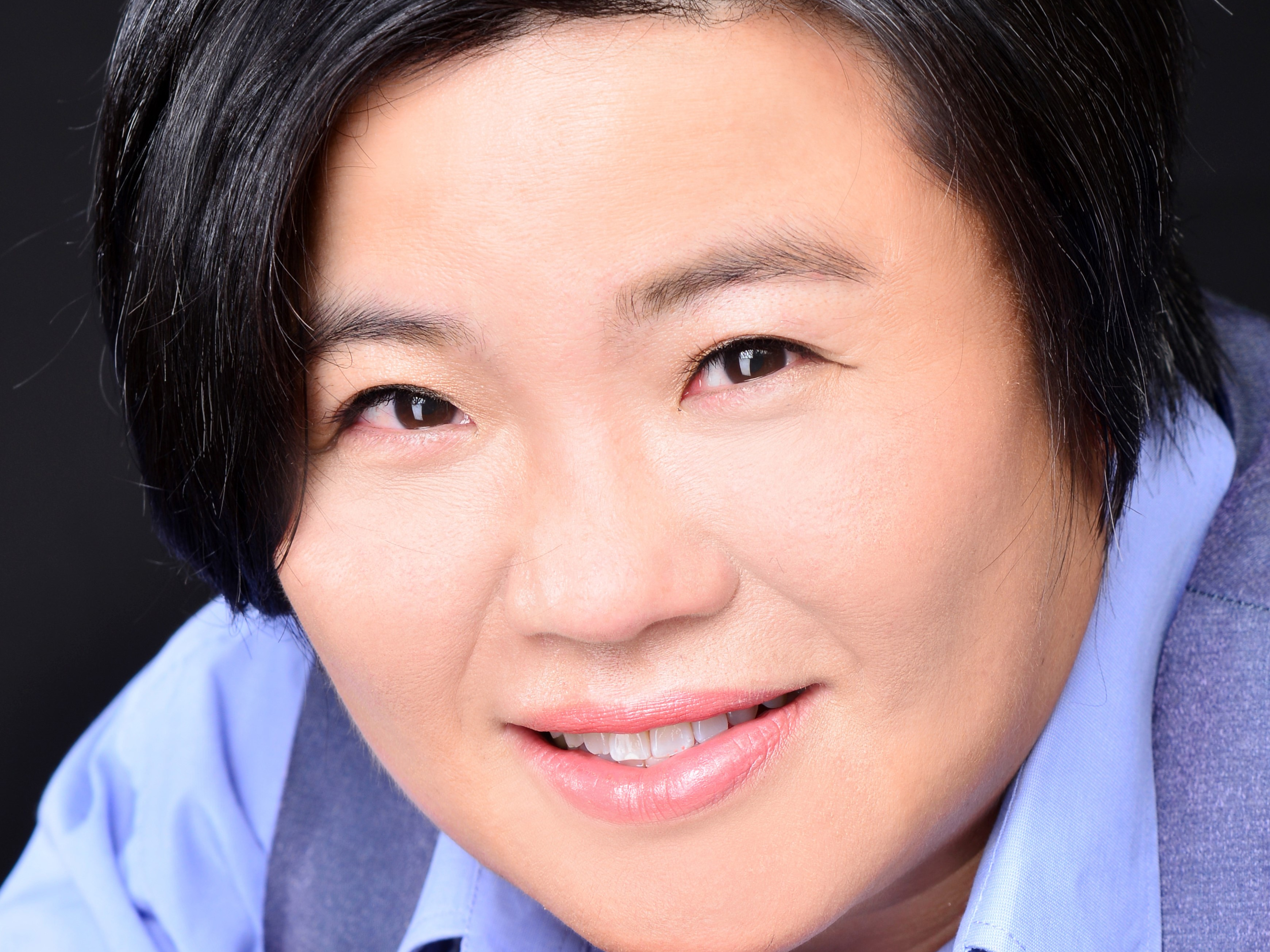style=”font-weight: 400;”>
- Joannie Fu is the chief of staff and technical assistant, Programmable Solutions Engineering Group, at Intel.
- When she began her career in tech, she was told she didn’t look feminine enough and that she had to change her appearance.
- She eventually found a workplace that accepted her for who she is. Now, Fu is a prominent LGBT advocate who wants employees to embrace what makes them unique.
- Visit Business Insider’s homepage for more stories.
When I was in my mid-20, I had to make an overwhelming decision. After years of studying engineering and business, I received job offers from five companies. They all had similar compensation, attractive opportunities, and welcoming teams. But as a first-generation immigrant, Asian-American, and lesbian, I desired more: I wanted to work for a socially responsible global company where I could be out as my true self.
In the early 2000s, acceptance for gay, lesbian, and transgender employees was not a given. At a company I’d previously joined after college, the management team made it implicitly clear that I could either be myself or advance my career – but not both. I was routinely given feedback that I appeared too androgynous. I was also told that I should not attend client meetings since I might cause distraction or discomfort for those clients, even though I had performed the research and developed the presentation with high praise.
This message came from the exact same management team that continually told me I had great capabilities and an incredible future. After being mired in these mixed messages to the point of dressing femininely and wearing make-up, I eventually realized that I would never get ahead at a company that didn’t accept me. I simply would not reach my full potential if I had to invest my energy worrying daily about what I was wearing.
Finding allies is the best way to grow in the workplace
When I eventually joined Intel in 2000 as a Colorado Fab Senior Buyer and Team Lead, I knew from the start that I never wanted to be in a similar situation again. On my first day, I cautiously came out to my manager and told him that I did not want special treatment, that all I wanted was to be treated like everyone else.
He absolutely surprised me when he responded, "Why do you want to be ordinary when you can be extraordinary?!" He encouraged me to start a local chapter of Intel's IGLOBE employee resource group for LGBT+ employees in Colorado. He also sponsored me to attend conferences to speak about diversity, and pushed me to be vocal when I saw inequalities in the workplace. He was an exceptional ally pioneer, planting leadership seeds in me ― professionally and personally ― that continue to bloom today.
Read more: The 23 most powerful LGBTQ+ people in tech
Several years later, I was offered an expatriate assignment to start Intel's first factory in Dalian, China, which I knew I couldn't pass up. But same-sex marriage was and still is illegal in China. My domestic partner and I had just welcomed our first child, and I was adamant that I would not go to China without them.
It's one thing for a company to claim equal protection for LGBT+ individuals under official policies and another to truly ensure they have access to the same rights, benefits, projects, and opportunities as other employees. My company very well could have pointed to official Chinese government policies and left me to handle the logistics of getting my partner and child to China on my own. But Intel HR, the legal team, PR, and the management team surprised me by providing all the necessary resources to avoid separating our family, from support in coordinating with the government, to help with securing my partner's visa, to ensuring our safety while abroad.
Employees feel motivated when they have managers with diverse backgrounds
My experiences in Colorado and China (as well as the freedom to be my authentic self) are some of the reasons why I've thrived at Intel for 19 years and counting. And they provide lessons that other companies would be wise to take to heart if they want to retain talented employees and build employee satisfaction. According to the 2018 Deloitte Millennial Survey, 69% of millennial employees who believe their senior management teams are diverse describe their working environments as motivating and stimulating, versus 43% who don't perceive their leadership teams as diverse.
Being able to embrace my identity with pride has also helped me grow both professionally and personally in ways that I could not have anticipated. It's given me new leadership opportunities, sharpened my skills, and helped me coach others on their journeys.
Today, I am part of the Intel LGBT+ leadership council and actively lead several initiatives within and outside of Intel, including Lesbians Who Tech, and Out & Equal. It's also led to a tremendous sense of personal fulfillment when I know my efforts have made a positive difference for others. After China, I moved to California to work at an Intel campus that was part of a recent acquisition. While raising greater awareness and acceptance for the LGBT+ community within my new campus, a colleague let me know that after 12 years in the workforce, she finally felt safe bringing her best self to work.
My advice: Find a workplace that will accept you as you are, and not force you into a single mold. Identify allies within your organization that will speak up and advocate for you. And most of all, embrace what makes you unique and learn how to leverage it to reach your full potential. Love your uniqueness even more fiercely than you love your strengths, for they are one and the same. Don't be ordinary ― be extraordinary!
Joannie Fu is the chief of staff for the Intel's Programmable Solutions Engineering group. She partners directly with Engineering VPs as a key trusted advisor to set strategies and imperatives for the PSE Exec Office for an org that spans silicon, hardware, software, IP, platform, manufacturing, and quality engineering which deliver multi-billion dollar revenue for the Intel FPGA business.

